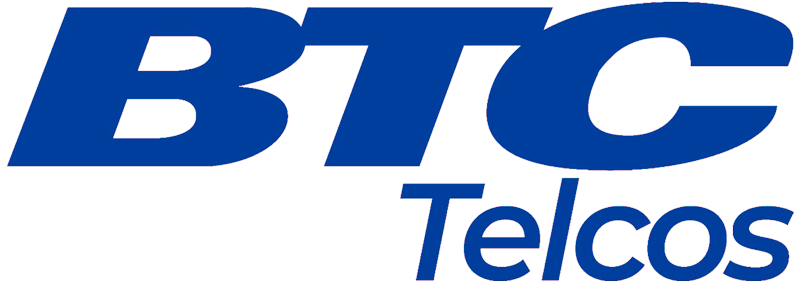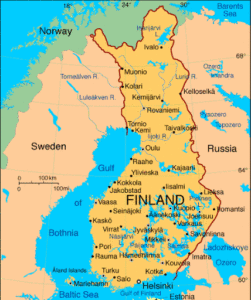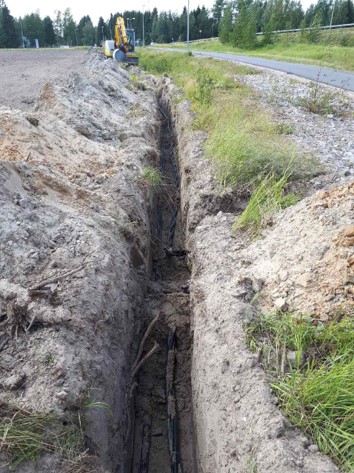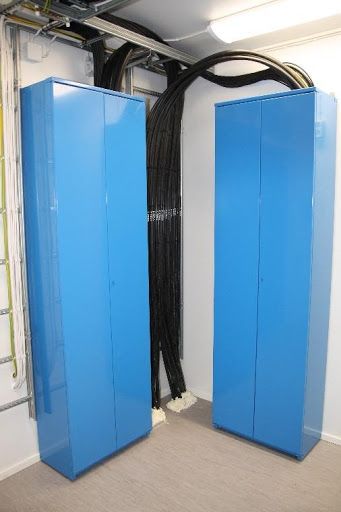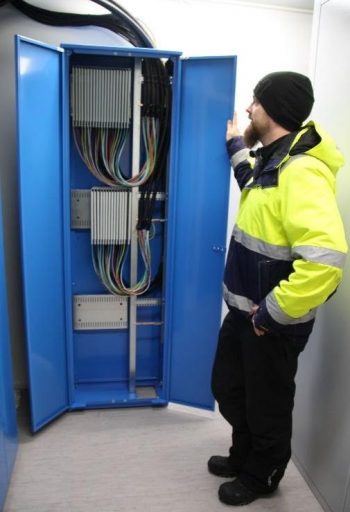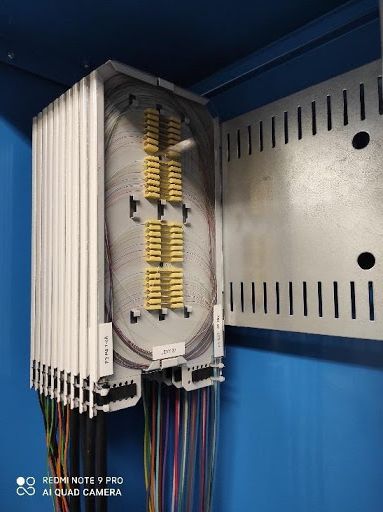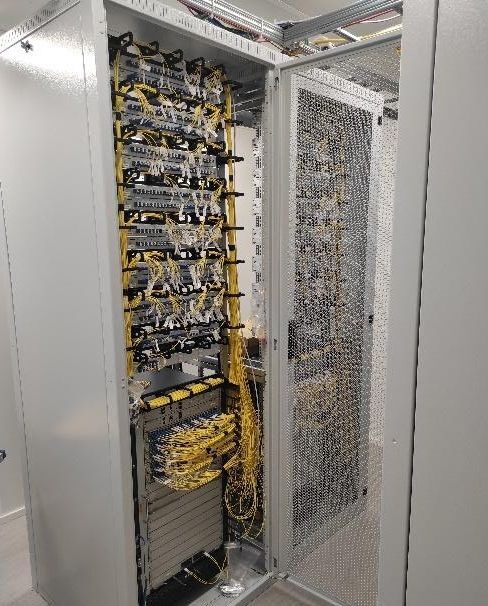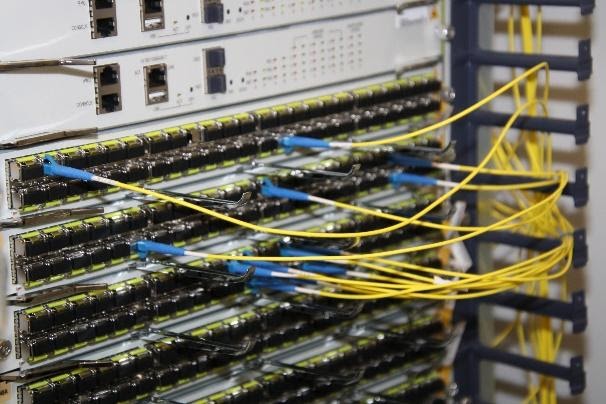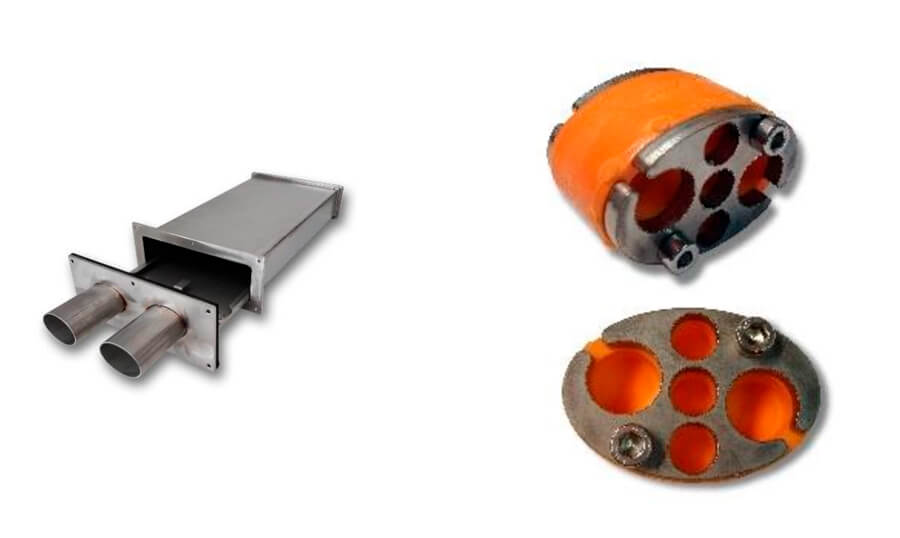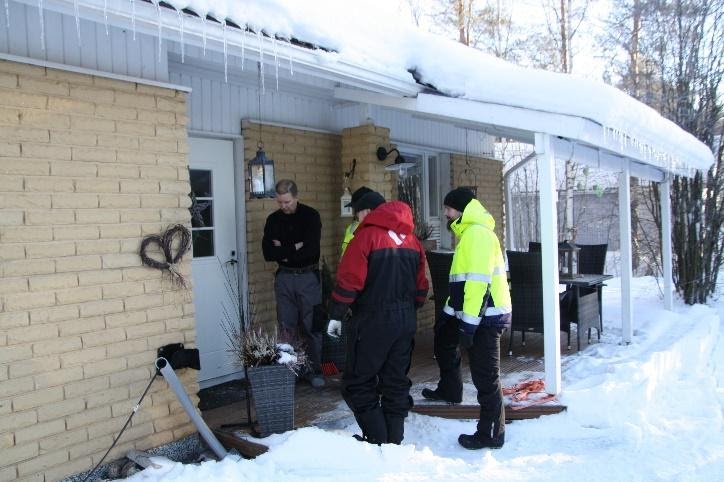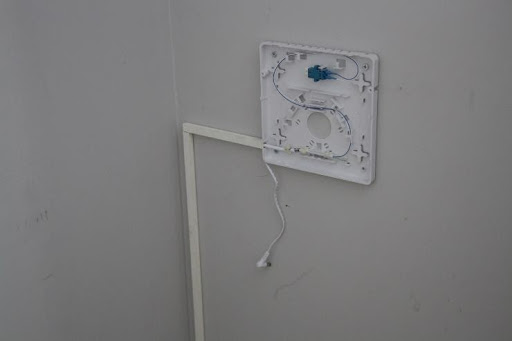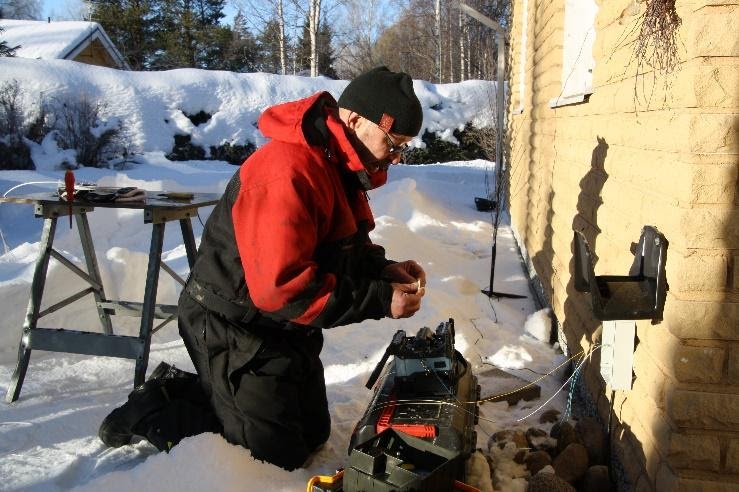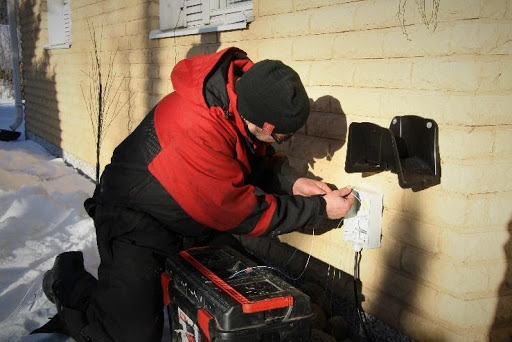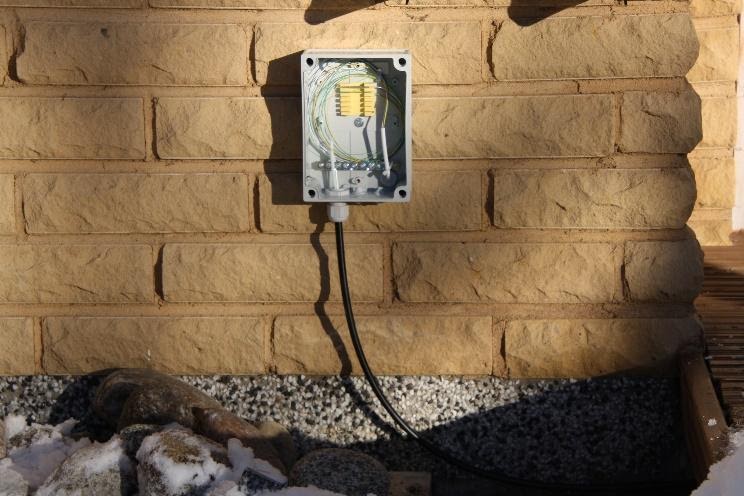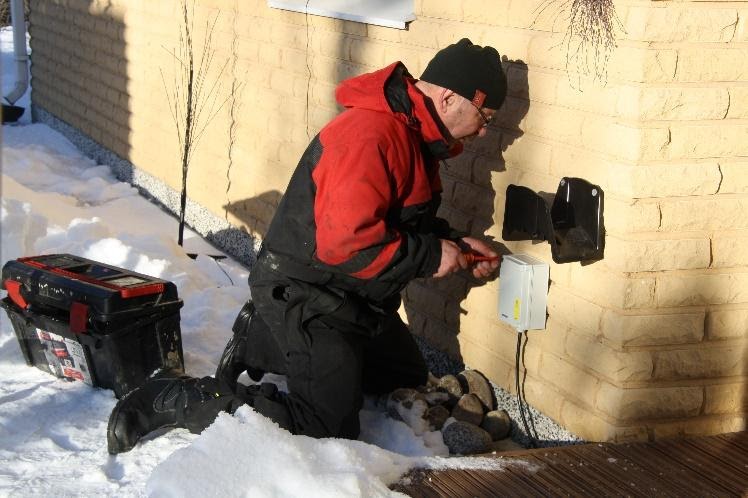BTC’s products to FTTH operator Lakeuden Kuitu
FTTH operator Lakeuden Kuitu is a daughter company of the local electricity company Oulun Seudun Sähkö. It operates in the middle of Finland near the city of Oulu that is the capital of northern Finland. Oulun Seudun Sähkö is today 100 years old company that started to offer some years ago broadband services via optical fibres to their customers. At the moment Lakeuden Kuitu operates in five municipalities near Oulu and partly in Oulu city. During the last years fibre optic networks have been built hundreds of kilometres and the speed of construction continues at the same level on this year. The quantity of their FTTH customers is nowadays several thousands and the quantity is growing all the time.
A big part of this construction work of the fibre optic networks will be made as a common project with electricity cables when Oulun Seudun Sähkö replaces their old aerial cables to buried cables. The building process together with optical fibre and electricity cables causes naturally challenges for the construction work but gives benefits for the local people as the street areas are opened only once and this happens very fast.
Eletricity cables and optical fibre cables have been placed to the same ditch
Fibre optic networks have been planned and will be realized at the way that all the households have possibility to get access to the network. Though the biggest telecom operators in Finland are now offering new 5G mobile connections partly in this area more than half of the households have made contract with Lakeuden Kuitu for the fast and fixed access to different telecom services like internet, IPTV and CATV.
At the beginning Lakeuden Kuitu offered services with Ethernet technology but today they use GPON technology in their new areas because GPON has been seen to be more cost-effective and more flexible than Ethernet for the growing quantity of customers.
The constructon of the fibre optic network
The topology of the fibre optic networks is a full star starting from the access node and terminating to the interface of the customers in both Ethernet and GPON technologies. As using GPON technology splitters could be placed to primary and secondary distributors of the networks but these will be placed to access nodes like switches in Ethernet network. This solution has been seen to better because then the networks are open both for Ethernet and GPON technologies.
Fibre optic lines start from the access nodes with feeder cables having 96, 192 or 288 fibres. In distributors that are either joint closures or splice cabinets feeder cables are branched to smaller distribution cables with 12, 24, 48 or 96 fibres. In secondary distributors these distribution cables are finally branched to drop cables having 4, 12 or 24 fibres depending on the building. For single-family houses drop cables have 4 fibres though just one fibre is used. This fibre quantity is minimum for single-family houses because this has been specified by Finnish Transport and Communications Agency TRAFICOM. For row houses and multi storey houses fibre quantity is 12 or 24 and for commercial or office buildings fibre quantity is same 12 or 24. In the following figure is described the model of the optical access network.
BTC’s products to the optical access network of Lakeuden Kuitu
BTC has been delivered to Lakeuden Kuitu all the termination and distribution products to access nodes and to customers’ premises. From last year BTC has delivered also joint closures for outside plant network. For access nodes BTC has delivered splice cabinets, pre-terminated patch panels, patch cords, connectorized jumper cables and splitter modules. For customers’ premises BTC has delivered outdoor termination boxes and pigtail cable kits to single-family houses and pre-assembled patch panels for bigger buildings. In the next chapters will be described the use of these products in different sites.
Fibre optic installations in access nodes
Examples of the access nodes.
In all access nodes the incoming buried cables are first spliced to fire-safety, non-metallic and flexible indoor/outdoor cables that are pre-terminated to 19” patch panels. Thus there are just one splice per fibre for all the incoming fibres. The splices are placed to NAF1000 splice cabinets. Pre-terminated and 48 fibre patch panels are placed to the same 19” cabinets as the switches in Ethernet network or the splitters in GPON network. Between the patch panels and switches or splitters will be installed short patch cords that are also BTC’s products. Between switches or splitters and the active equipment of the trunk network are used pre-terminated jumper cables that are delivered by BTC.
In the next photos are shown installation from one access node of Lakeuden Kuitu
Buried cables with totally 4500 fibres comes to this access node.
Jaakko Kiuttu as a project manager of Lakeuden Kuitu presents neat installation in NAF1000 splice cabinet.
Splice trays in NAF1000 splice cabinet
Jaakko Kiuttu marks the patch panels with their own identification codes before installations of the patch cords.
Patch cords between Ethernet switches and patch panels.
For the customers who have made contract with Lakeuden Kuitu transceivers have been installed and in use. As soon as the drop cable has been installed to the customer and the connection has been tested, the customer can start the service.
Frame and two pre-terminated modules of jumper cables
Splitter module with three 1:16 splitters for GPON networks
Joint closures for outside plant networks
BTC has delivered since last year a lot of their new joint closures to Lakeuden Kuitu. BTC has several types of closures but Lakeuden Kuitu has preferred BTC’s universal joint closure NAF 96-F that is an optimal choice for distributors having possibility for mid-span access and mechanical cable inlets for several feeder, distribution and drop cables.
Universal joint closure NAF 96-F and one of the mechanical cable inlets
Fibre optic installations in single-family houses
The single-family houses that have made contract with Lakeuden Kuitu drop cables are drawn to customers’ sites before winter time. During winter cables can be terminated when that suits to customer and to the constructor of Lakeuden Kuitu. The type of the cable in all customer nodes is non-metallic drop cable FYO2RMU made by a Finnish cable manufacturer Nestor Cables. The cable can be buried or ploughed directly to the ground.
The drop cable has Polyethylene outer sheath and therefore its is not allowed to be installed inside of the house more than 5 meters. The cable is also quite stiff and from these reasons drop cable is changed in all customer nodes to a flexible, non-metallic and fire-safety indoor/outdoor cables FTMSU that is also made by Nestor Cables.
Non-metallic drop cable FYO2RMU 4xSML
Indoor/outdoor cable to single-family houses FTMSU 4xSMT
The drop cable has Polyethylene outer sheath and therefore its is not allowed to be installed inside of the house more than 5 meters. The cable is also quite stiff and from these reasons drop cable is changed in all customer nodes to a flexible, non-metallic and fire-safety indoor/outdoor cables FTMSU that is also made by Nestor Cables.
The drop cable is spliced outside of the house to indoor/outdoor cable by using BTC’s outdoor termination boxes. The indoor/outdoor cable is pre-terminated to a to LC/UPC or LC/APC connectors depending on the type of network. These pigtail cable kits are normally 30 m long and they are made by BTC but customized cable lengths are also available.
Here are some photos and information about the drop cable installations in single-family houses.
The installers of the constructor have arrived to the customer at the approved time. In every house they agree together with the customer the places for the outdoor termination box and the wall outlet inside of the house as well the cabling between these boxes.
The connectors of the pigtail cable have been connected to LC duplex adapter of the optical network unit (ONU). The pigtail cable and the power cord are protected with a common and small plastic trough. When the installation of the outdoor termination box is ready, the active part of the ONU is mounted to its place and a short patch cord is connected between the active part and the adapter. After that the connection is tested and then the customer’s interface to the network is ready to be used.
An installer is splicing the fibres of the drop cable to the fibres of the pigtail cable. At that day the weather was quite good for this work: not too cold, no rain nor cold wind from the sea. If the weather is bad, an installation tent is needed.
Just two fibres are spliced though both of the cables have four fibres. When these fibres are spliced, they are mounted very carefully to the termination box. The other fibres are also mounted to the box and at the way that it is possible to take them to use afterwards if needed.
Fibres are spliced and mounted to BTC’s outdoor termination box. The small and flexible pigtail cable goes into the house through the bottom of the box and so it is very well in safe.
The cover of the outdoor termination box is fixed carefully to its place in order that the tightness of the box is certainly as it should be, IP 67. The drop cable will be protected from the ground to the outdoor termination box with a metallic trough and thus the installation is quite neat and well protected against different kind of risks.
Final words
The FTTX project of Lakeuden Kuitu has been very big and remarkable for BTC. The production of pre-terminated patch panels, pigtail cable kits, jumper cables and patch cords gives a lot of work for the personnel in BTC’s factories in Dubai and In Finland. The mechanical products like splice cabinets, patch panels and joint closures give also a lot of work to BTC’s subcontractors in Finland. As being a partner for Lakeuden Kuitu this project has given in gives all the time a lot of experiences and knowledge to BTC about the implementation of FTTH networks from the passive products to network technologies.
